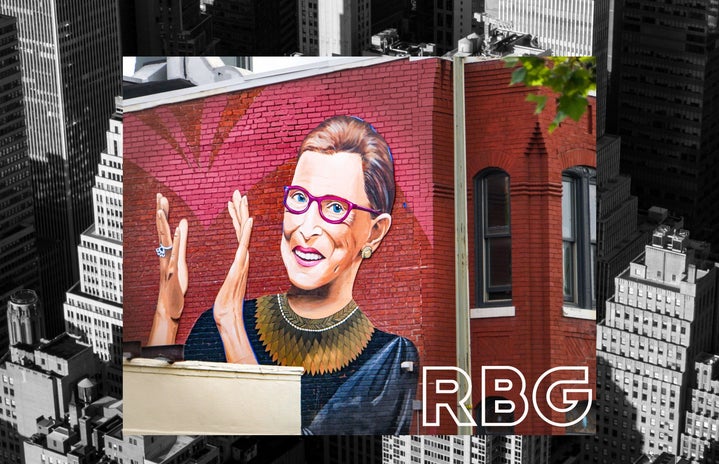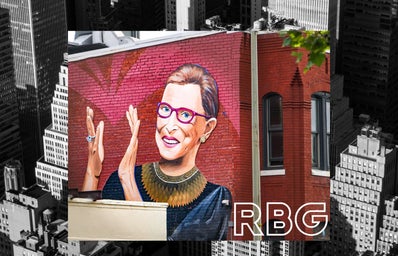On September 18th of this year, Justice Ruth Bader Ginsburg passed away after a long battle with cancer. She was the second woman to be appointed to the bench in 1993 by President Bill Clinton. RBG is considered one of the most influential women of all time. Justice Ginsburg has paved the way for many people and communities, including women, the LGBTQ+ community, people of color, immigrants, and Black Americans. While RBG has spent most of her career fighting for others, she is not a perfect person. In her early career, RBG took part in cases that hurt many Native American tribes, and later in her life, she has said that she regretted some of her prior rulings. While RBG may not be perfect, she has paved the way for minorities to feel like they have a seat at the table, and she is a personal inspiration to myself.
Throughout her twenty-seven-year career on the bench, RBG has been seen, concurred, and dissented many cases. Here are some of Justice Ginsberg’s most compelling and memorable cases:

Cases Involving Women’s Rights
-
The United States v. Virginia 1996
-
This is a case regarding university admission.
-
SCOTUS repealed Virginia’s “separate but equal” rule that Virginia state universities had that allowed schools to deny women’s admission based on their sex, which was prominent in their military institutions.
-
Justice Ginsburg wrote the majority opinion, stating that this was a “direct attack on women’s rights.”
-
-
Ledbetter v. Goodyear Tire & Rubber Co. 2007
-
RBG is known for dissents. In this case, she dissented the majority decision.
-
The majority decision made it more difficult to sue employers over wage discrimination.
-
RBG dissented this decision, saying that it should not be more difficult for women to sue for equal pay.
-
Cases Involving Race
-
Shelby County v. Holder 2013
-
This is a case in which the Voting Rights Act of 1965 was in danger.
-
The worst acts of voter suppression were happening in parts of the country, and it was up to SCOTUS to determine whether or that was unconstitutional.
-
Yes, this is another dissent from Ginsburg. This was a 5-4 ruling. She found this appalling.
-
-
Grutter v. Bollinger 2003
-
This is an affirmative action case regarding university admissions. This was a case with racial bias.
-
In the majority, this held up the Equal Protection Clause in the Constitution.
-
Cases Involving Indigenous Rights and Communities
-
City of Sherrill v. Oneida Indian Nation of New York 2015
-
This is not a win in RBG’s history, which she has acknowledged. She has said that she was naïve and not nearly well-educated in First Nations history and current issues.
-
This case struck down $600 million for Navajo nations to receive. The US Department of Interior misallocated these funds. RBG stood, with the majority, with the Department of Interior.
-
-
McGirt v. Oklahoma 2020
-
On a positive note, this case affirmed the existence of Native reservations and tribal sovereignty.
-
Other Important Cases
-
Obergefell v. Hodges 2015
-
This case legalized gay marriage in the United States.
-
RBG was instrumental in making sure that the court was on the right side of history.
-
-
Olmstead v. L.C. 1999
-
This is a significant case in disability rights, which upheld the Americans with Disabilities Act of 1990.
-
-
Bush v. Gore 2000
-
This was one of RBG’s dissents.
-
This was the case in which she came up with one of her most quoted line, “I dissent.”
-
Justice Ruth Bader Ginsburg’s life and legacy will hopefully forever live within the fabric of our history. Her monument decisions and dissents have paved the way for so many communities living within the United States. While she may have made errors in her twenty-seven-year career, she is not unconscious of her own mistakes. She believed that every person, no matter their sex, gender, sexuality, race, income, etc., should be left out of the conversation. She is a pillar in our society and a figure in history that should never be left out or forgotten.
Thank you, oyez.org, for the information!



